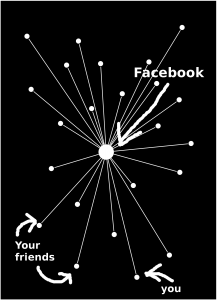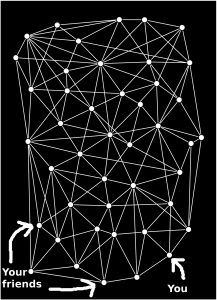Facebook’s OpenGraph: Time to get out
Yesterday, Facebook founder and CEO Mark Zuckerberg announced the Next Big Thing (TM) for Facebook: OpenGraph. In a typically glowing article, Wired sums it up as follows:
an initiative that will allow thousands of developers to make social applications tightly woven into the Facebook system, much more so than with the existing platform. Media applications in categories like music, news, and video will not only be able to instantly make their content more valuable as friends share what they’re reading, watching and listening to with each other, but the media itself will seem to be part of Facebook. Though media apps are prominent among the F8 launch partners, however, Facebook expects people to write programs that involve every imaginable aspect of life.
The result Zuckerberg is hoping for is that people will leave a detailed record of every aspect of their lives on Facebook’s servers. Sure, you will be sharing thosed details with your “friends”; but in the end, it will always be Facebook that determines who can see those details.

The service may be convenient. But in effect, Facebook will be acting as its own private Internet.
Only that it won’t be like the Internet. The Internet is decentralised. There’s no single choke point where it can be controlled and censored. As John Gilmore said in 1993, the Internet “interprets censorship as damage and routes around it.”
So can you.

There are lots of projects out there that will do the same things that Facebook does, and much more. The crucial difference is that these projects put you in control. This is the basic idea of software freedom: That you should be able to control your own computing.
In the Fellowship wiki, there’s list of a lot of these projects. Go try them out. See if you can contribute to one of them. Or if you don’t like any of them, perhaps you can start your own. Just make sure it can talk to the others. Oh, and if you know of other Free Software projects building distributed systems, add them to the list.
So start using at least one of these projects today. You owe it to yourself.
Because from Facebook’s perspective, you are not the customer. You are the product.